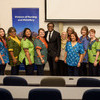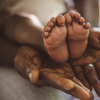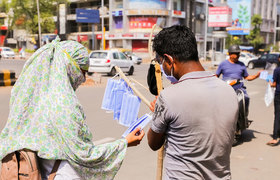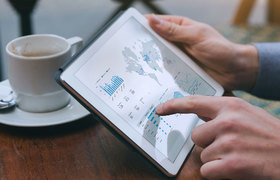COVID-19, ‘an opportunity for climate action’
29 May 2020 | Story Niémah Davids. Photo Pexels. Read time 6 min.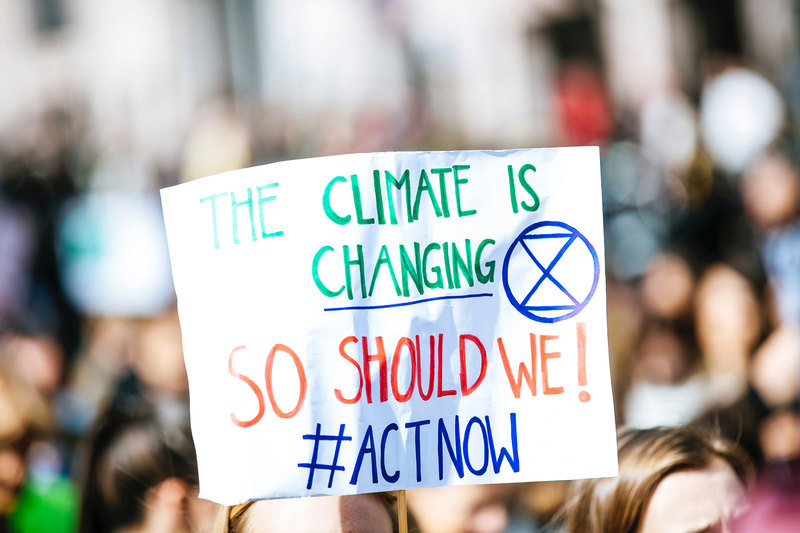
Robust discussions on climate change and development links in Africa took centre stage on day two of the University of Cape Town’s (UCT) Africa Month Virtual Symposium, on Thursday, 28 May.
Hosted by the African Union’s Peer Review Mechanism in partnership with the UCT Convocation and the Nelson Mandela School of Public Governance (NMSPG), the three-day event kicked off on Wednesday, 27 May, themed, “Africa’s innovations in the global fight against COVID-19”.
The symposium offers a fitting close to Africa Month, which commenced across the continent at the start of May and included the annual Africa Day celebration on Monday, 25 May. Africa Day commemorates freedom from the yoke of colonialism and apartheid and signals the anniversary of the formation of the Organisation of African Unity in 1963.
Thursday’s session, moderated by Saliem Fakir, executive director of the African Climate Foundation, unpacked the climate change and development nexus: moving from obligations to opportunities. Several speakers weighed in on the topic, including the NMSPG’s Professor Carlos Lopes; executive director of Climate Action Network International, Tasneem Essop; and director of the environment and technology division for the International Food Policy Research Institute, Channing Arndt.
“Just like COVID-19, we have to live with the virus, so we must live with climate change.”
“Climate [change] is a story of everyday life, not just for Africa, but for everybody. It’s a story about the normal, the abnormal and the extreme. So, we have to think about the future with climate change as a central part of the story,” Fakir said.
“Just like COVID-19, we have to live with the virus, so we must live with climate change. But how we live with it depends on our own consciousness, desire and ways of reimagining society, economies and politics.”
Convert a challenge into an opportunity
Lopes described the economic impact of COVID-19 on the continent as “devastating”. He also stressed the importance of using the pandemic as an opportunity “for changing our development patterns and an opportunity for climate action”.
“This particular crisis is the right time to shift towards a cleaner, low-carbon production consumption base, way beyond energy, but based specifically on energy as an entry point,” Lopes said.
“Africa has the luxury of accelerating its industrialisation because we need to do that. But with greener solutions.”
Getting it right is straightforward, he pointed out. It involves making use of the latest technological solutions with “cleaner and proper solutions”.
“This particular crisis is the right time to shift towards a cleaner, low-carbon production consumption base.”
“You don’t need to build the new infrastructure with the characteristics of the past. You can make it sustainable,” he told the audience.
Lopes said a “powerful message to African leaders” would be to “adjust to the new normal” that a post-COVID-19 world brings. The new normal, he added, should be focused on altering development patterns on the continent. This includes addressing the lack of food security as a result, for example, of natural disasters.
“All these crises [natural disasters] are climate related. Climate change is part of the mix and we need to seize the problem in its entirety. We [need to] put climate action at the centre of what we do,” Lopes said.
Under the African sun
Despite the many challenges the continent faces, Channing said Africa has reason to be optimistic and he listed solar power as the reason for this.
“There’s been a huge move to solar generation globally and a lot of this is happening in China and in the developed world, and it’s starting to happen in Africa as well,” he said.
“One of the reasons we can be optimistic about our solar power in Africa is [because] of the level of resource. There’s a lot of sun on the African continent.”
Channing said according to a data set, the worst place for solar power generation in South Africa is “better” than the best place for solar power generation in Germany.
“The difference in resource is enormous. There’s a solar endowment in Africa that’s really remarkable and far, far better than what you would find in Germany,” he said.
Climate change and development
According to Essop, addressing climate change on the continent starts with development. And development, she said, is not achievable without prioritising climate change.
She told the audience that the current COVID-19 crisis presents an opportunity to draw lessons from the continent’s climate change crisis.
“All these issues that matter for the COVID-19 crisis matter for the climate change crisis as well.”
“I think it would be amiss of us not to draw these linkages in such a conversation. There is still a very polarised view [that] climate change is a burden and the antithesis to development. But to a large extent there is a growing consensus that this is not the case,” she said.
Essop listed five key points that Africa can take away from the COVID-19 pandemic:
- health and safety of frontline workers and those vulnerable to the virus matter
- science matters
- leadership matters
- local and global solidarity matter
- transparent, inclusive and democratic governance matter.
“All of these issues that matter for the COVID-19 crisis matter for the climate change crisis as well,” she said.
When dealing with the links between climate change and development, Essop said it’s essential to deal with what is likely the continent’s two biggest challenges first: poverty and inequality.
“Any work that we do to address climate change, we have to put poverty and inequality at the centre. In doing so, we’ll fundamentally deal with development and the developmental challenges we have on the continent,” she added.
 This work is licensed under a Creative Commons Attribution-NoDerivatives 4.0 International License.
This work is licensed under a Creative Commons Attribution-NoDerivatives 4.0 International License.
Please view the republishing articles page for more information.


